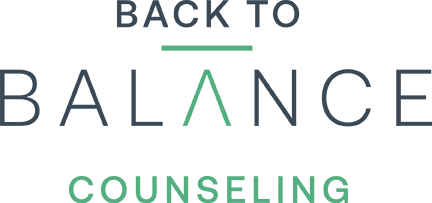- Why am I not connecting with my baby?
- I don’t think I’m supposed to be this tired.
- Did I eat today?
- I’m not sure if I love my baby.
- What if I drop my baby?
- Can other people tell I’m a bad mom?
- My friends instantly bonded with their babies.
- Is the baby breathing? Should I check….again?
- Maybe I should call the pediatrician just to make sure.
- I wish I didn’t have to get out of bed today.
If any of this sounds familiar to you, you may be struggling with some postpartum stuff. I get it, you feel ashamed and like you don’t have your act together, BUT, the truth is, way more women struggle with postpartum depression and anxiety than you might think. And honestly, the fact that you’re here, reading this page, shows that you ARE a good mom. Something feels off, and you’re trying to figure out what the hell to do next.
Many mothers experience what is known as baby blues after giving birth. Lasting approximately two to three weeks, new mothers may feel anxious or depressed as their bodies and hormones adjust to no longer carrying a life inside of them. However, for some women, these feelings last much longer.
As a result, some new mothers may stop taking care of themselves or find hiding spots to get away. Others may begin to disengage from their support system and social networks. It is also common for some new moms to withdraw from their newborns for fear of hurting them or because they don’t feel a deep and immediate connection to them. And though no one expects parents to feel fully rested while taking care of a newborn, the physical and mental exhaustion can be so overwhelming that it disrupts every aspect of life.
If you are like most mothers, you probably just want to feel like yourself again after the birth of your child. Or maybe you are searching for pregnancy support or tips to help you prepare for birth. In either case, counseling for postpartum or perinatal issues can help you navigate this new chapter in your life.

Many Women Experience Symptoms Of Postpartum
Even though it feels very isolating, it is common for women to develop perinatal or postpartum disorders. It is estimated that 1 in 7 women will experience postpartum depression or anxiety. It is also more likely that a woman will go through postpartum blues again if they experienced it with a previous pregnancy.
Many contributing factors can increase the chance of experiencing a mood disorder during or after a pregnancy. For instance, complications at any stage of pregnancy can harm a mother’s mental health. Or, if a new mother is not receiving help with domestic responsibilities or caring for the child, she may begin to feel frustrated and alone.
Many women will feel shame or guilt if they feel symptoms of anxiety or depression during the postpartum period. It is important to understand that what you are going through right now is not a sign of bad parenting. Your body made many transformations during pregnancy and after birth. Even if it has been months since you delivered, your mental and physical states are still adjusting.
Changes in hormone levels before and after pregnancy can cause imbalances within you. You are not at fault for feeling the way you do or not responding to your newborn in the way you expected.
Worsening these issues is social media and the image of perfection that comes with it. Scrolling through Instagram or Facebook, it is hard not to compare yourself to the lives that others project over social media. You could feel as if you are not measuring up to the standards society places on new moms. Try to keep in mind that social media is generally the highlight reel of people’s lives.
It can feel like a daunting step to admit that you may need therapy during the perinatal or postpartum periods. With the right support through postpartum counseling, you can overcome the challenges you are facing and begin to feel happy and confident in yourself.
Counseling For Postpartum Issues Can Help You Enjoy This Time
Many women are surprised to hear that perinatal and postpartum disorders are temporary and treatable. Most do not talk about how they are feeling for fear of being judged or shamed by others. Postpartum therapy provides you with a safe, confidential, and non-judgmental space to talk about the problems you are facing.
In the first session, we will go over the paperwork and review logistics together. Afterward, we will talk about the current situation in your household. We will discuss the emotional and social functioning in your life and what you are doing to practice self-care. Collaboratively, we will also talk about whether or not you feel that you have a support system.
Examining the overall picture of the household will provide a better understanding of what may be negatively impacting your emotional well-being. With counseling, you will receive knowledge about the postpartum and perinatal periods. Through this education, your understanding and compassion towards yourself will expand as you see that you aren’t alone with your struggles. As we continue to work together, you will learn that the symptoms of postpartum are way more common than you may think. You will see that you don’t have to be defined by your thoughts and feelings.
One approach we use in counseling to address postpartum issues is Cognitive-Behavioral Therapy or, CBT. This is a type of therapy that is based on the idea that we can change the way we feel by changing how we think. As an empirically-supported methodology, CBT reveals the connection between how our thoughts influence feelings, which in turn dictates behaviors. It helps people understand how their perceptions have a powerful impact on the way they respond to situations.
In addition to CBT, we use Interpersonal Therapy (IPT), which will help you adjust how you interact with the world around you. IPT focuses on the present to address current issues in your life and relationships. It will help you to focus on enhancing relationships to relieve distress that you may feel.
Postpartum and perinatal therapy will help you to de-stigmatize signs and symptoms of postpartum depression and anxiety. Not only that but you will learn to set realistic goals to help you achieve what you want. Your stress levels will decrease as you learn how to prioritize the things that are the most important. Over time, the transition into motherhood will feel more natural and you can begin to do more.
We’re here to support you through your pregnancy and postpartum journey so that you feel guided and secure. With the right support, you can find a new sense of purpose as you navigate this new chapter of your life. Postpartum therapy can help you feel like yourself again so you can feel present in your life and your newborn’s as well.
Maybe you still have questions about counseling for postpartum…
Isn’t this just a case of the baby blues?
Typically, the baby blues will last two to three weeks after delivery. If you are noticing that your postpartum symptoms are lasting longer than that, it may be an indicator that additional support is needed.
I don’t have time to come in since I am a new mom and juggling so much.
I totally get it…the thought of adding ANOTHER thing. The great news is, I have early morning appointments available, and if you need to bring your newborn, I am completely fine with that. We can also do a telehealth session if traveling to the office is an inconvenience.
I am embarrassed that I let this happen, and I feel like a bad mom.
You did not let this happen. Certain risk factors leave women predisposed to developing perinatal or postpartum disorders. The fact that you are even considering seeking support for your pregnancy or postpartum period proves that you are a good mom.
You Can Find Relief To Live A Healthier, Happier Life
I understand how difficult it can be during new motherhood—and you don’t have to do this alone. With postpartum counseling, you can learn to face each day with confidence and a renewed sense of hope. If you are still hesitant, please reach out to me for a complimentary 15-minute phone consult or contact me through the website.



